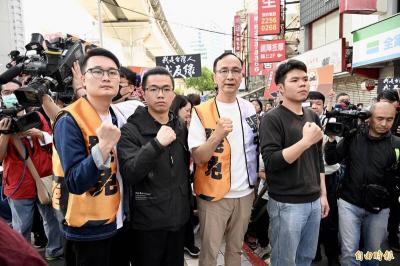Solutions to an ecological disaster caused by introduced bird species is to be discussed by experts, the Council of Agriculture said yesterday.
The first step is to get the opinions of experts and academics, who are to meet in Taipei today to discuss the growing number African sacred ibises in Taiwan and their impact on the nation’s ecology, the council said.
Under the auspices of the council and the Chinese Wild Bird Federation, specialists in ecological balance and wild birds will discuss how best to deal with the problem, Forestry Bureau division head Kuan Li-hao (管立豪) said.
Kuan said the ibis, which is endemic to sub-Saharan Africa and the Middle East, was first introduced to Taiwan more than 30 years ago by a private zoo.
In 1984, some ibises were spotted in a wetland, which indicated that they were breeding in the wild, Kuan said, adding that it is likely the birds escaped from the zoo in Hsinchu County during a typhoon.
That year, the number of African sacred ibises in Taiwan was in single digits, but now there are about 1,100 in the wetlands stretching from northeast Taiwan to the west coast, Kuan said.
The birds are also seen at wastewater treatment plants, on manure heaps and in garbage dumps, Kuan said.
The omnivorous African sacred ibis compete with the indigenous little egret and cattle egret for food and breeding grounds, he said, adding that the ibis might gradually drive out other bird species in rural areas.
The council has been trying to control the ibis population by removing eggs and destroying nests, but has had limited success, Kuan said.
The ibis has been listed by the EU as one of 100 invasive species, Kuan said.
In Africa, the bird feeds on the eggs and nestlings of wild birds that breed in groups, while in France, it eats the eggs and fledglings of terns and cattle egrets, he said.

The Ministry of Economic Affairs has fined Taobao NT$1.2 million (US$36,900) for advertisements that exceeded its approved business scope and ordered the Chinese e-commerce platform to make corrections in the first half of this year or its license would be revoked. Lawmakers have called for stricter supervision of Chinese e-commerce platforms and more stringent measures to prevent China from laundering its goods through Taiwan as US President Donald Trump’s administration cracks down on origin laundering. The legislature’s Finance Committee yesterday met to discuss policies to prevent China from dumping goods in Taiwan, inviting government agencies to report on the matter. Democratic Progressive Party

Taiwan and its Pacific ally Tuvalu on Tuesday signed two accords aimed at facilitating bilateral cooperation on labor affairs, according to Taiwan’s Ministry of Foreign Affairs (MOFA). The governments inked two agreements in Taipei, witnessed by Foreign Minister Lin Chia-lung (林佳龍) and visiting Deputy Tuvaluan Prime Minister Panapasi Nelesone, MOFA said in a news release. According to MOFA, the agreements will facilitate cooperation on labor issues and allow the two sides to mutually recognize seafarers’ certificates and related training. Taiwan would also continue to collaborate with Tuvalu across various fields to promote economic prosperity as well as the well-being of their

Taiwan would welcome the return of Honduras as a diplomatic ally if its next president decides to make such a move, Minister of Foreign Affairs Lin Chia-lung (林佳龍) said yesterday. “Of course, we would welcome Honduras if they want to restore diplomatic ties with Taiwan after their elections,” Lin said at a meeting of the legislature’s Foreign Affairs and National Defense Committee, when asked to comment on statements made by two of the three Honduran presidential candidates during the presidential campaign in the Central American country. Taiwan is paying close attention to the region as a whole in the wake of a

The Taipei District Prosecutors’ Office has continued its investigation into allegations of forged signatures in recall efforts today by searching the Chinese Nationalist Party’s (KMT) city chapter and questioning several personnel including the chapter director, according to media reports. Among those questioned and detained were KMT Taipei chapter director Huang Lu Chin-ju (黃呂錦茹), chapter secretary-general Chu Wen-ching (初文卿), chapter secretary Yao Fu-wen (姚富文) and first district committee executive director Tseng Fan-chuan (曾繁川). Prosecutors said they would not confirm reports about who had been summoned. The investigation centers on allegations that the ongoing recall campaigns targeting Democratic Progressive Party legislators Rosalia Wu (吳思瑤)